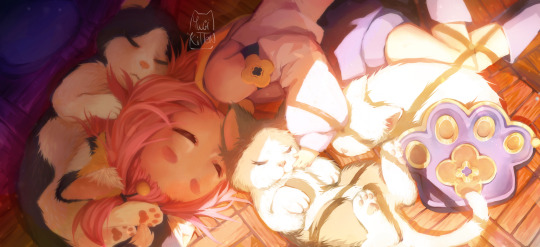Photo
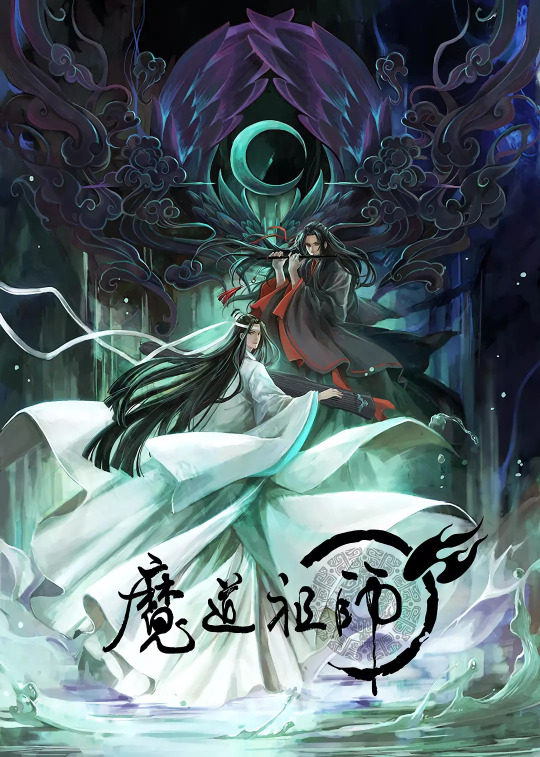
The Grandmaster of Demonic Cultivation / Mo Dao Zu Shi / 魔道祖师
As the grandmaster who founded the Demonic Sect, Wei WuXian roamed the world in his wanton ways, hated by millions for the chaos he created. In the end, he was backstabbed by his dearest shidi and killed by powerful clans that combined to overpower him. He incarnates into the body of a lunatic who was abandoned by his clan and is later, unwillingly, taken away by a famous cultivator among the clans—Lan WangJi, his archenemy. This marks the start of a thrilling yet hilarious journey of attacking monsters, solving mysteries, and raising children. From the mutual flirtation along the way, Wei WuXian slowly realizes that Lan WangJi, a seemingly haughty and indifferent poker-face, holds more feelings for Wei WuXian than he is letting on.
[Synopsis from Exiled Rebels Scanlation]
Genres: Action, Fantasy, Xianxia, Comedy, Historical, Supernatural, Mystery, Adventure, Novel
Produced by G.C May Animation & Film / B.C May Pictures / 北京视美精典影业有限公司 / 视美影业
Original Story by Mo Xiang Tong Xiu / 墨香铜臭
List of Artist
Donghua’s Official Weibo
Donghua’s Official Site
youtube
Original Episodes on Tencent (2 Seasons so far with a 3rd in production)
Official English Translation on Youtube
Mo Dao Zu Shi Q Trailer
Original Novel on JJWXC (JinJiang)
Original Manhua on Kuaikanmanhua
Manhua Official English Translation on WeComics
Audio Drama Season 1, Season 2, and Season 3 on Missevan
Japanese Audio Drama on Mimifm
Audio Book on Ximalaya
Drama Version (The Untamed / Chen Qing Ling); Weibo
Drama Version Special Edition
The Living Dead [CQL Movie 1] on iQIYI; Weibo
Fatal Journey [CQL Movie 2]
Mobile Game Official Site and on TapTap; Weibo
15 notes
·
View notes
Text
List of Mo Dao Zu Shi Artist
Mao Tuan Xiao Jian Jian / 毛糰小劍劍 [Manhua and an Our Different Paths Artist]

- (Twitter) https://twitter.com/maotuanxjj
贝壳手枪 [Key Animator of MDZS]

- (Weibo) https://www.weibo.com/u/1738890261?is_hot=1
申琳 / 申琳_新山海经 [Animation Supervisor]
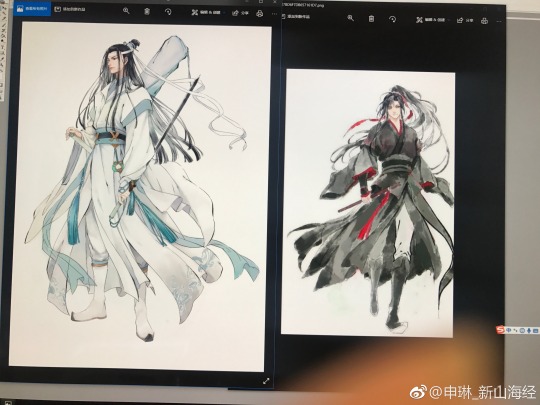
- (Weibo) https://www.weibo.com/u/2183420330?is_hot=1
阿昕 / A Xin / 日出的小太阳 [Audio Drama Cover Artist]
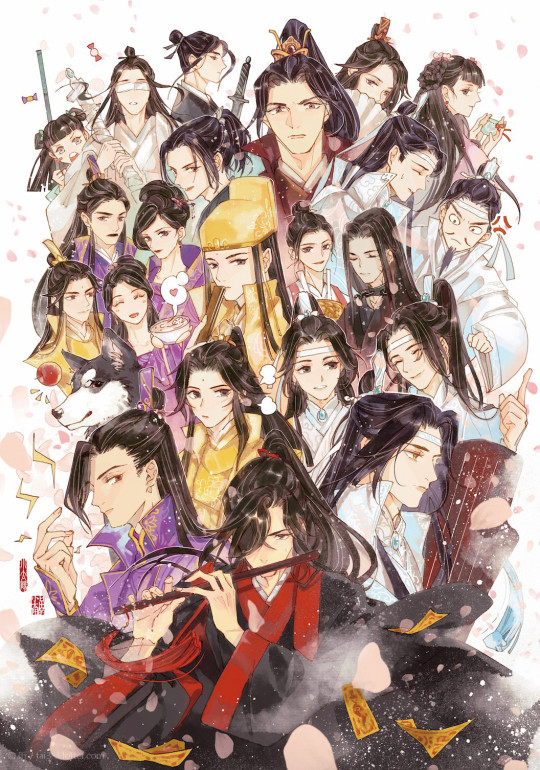
- (Twitter) https://twitter.com/tai3_3
Ma Que Su / 麻雀酥 [Audio Drama Extras Artist]

- (Weibo) https://www.weibo.com/u/2884481122
九条轮 / Jiu Tiao Lun [Audio Drama Artist]


Changyang / 長陽_RIN / 长阳 [Audio Drama and Thai Novel Artist]

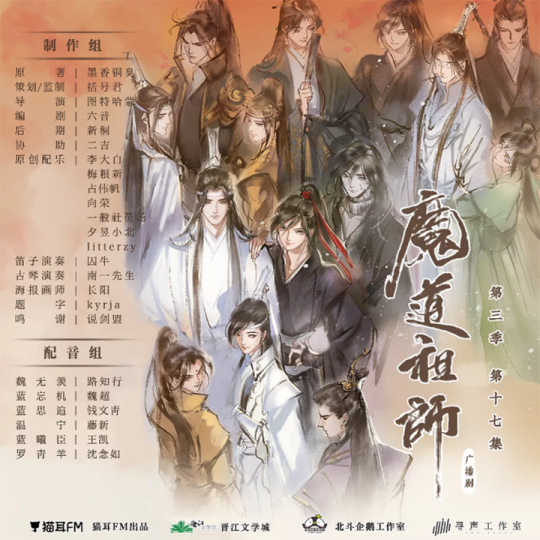
- (Weibo) https://www.weibo.com/u/2459871273
Higga [Merch and an Our Different Paths Artist]

- (Weibo) https://www.weibo.com/u/3916811892?is_hot=1
Li Mu Li / 利木利 [Merch Artist]


- (Weibo) https://www.weibo.com/u/2694788604
千二百 / Qian Er Bai [Audio Drama and Korean/Taiwanese Novel Artist]
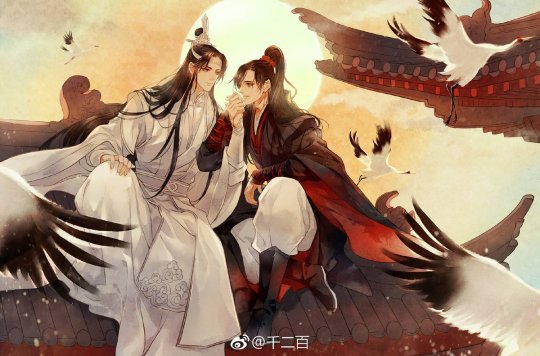
- (Twitter) https://twitter.com/qianerbai
Spoonkid [Audio Drama Extras Artist]
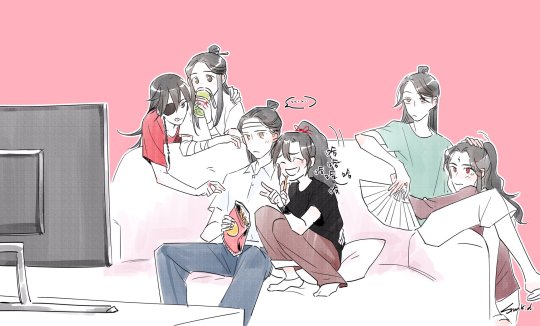

- (Twitter) https://twitter.com/spoonbalaba
HAloggz [Merch, Unfettered, and CQL Mobile Game Artist]


- (Twitter) https://twitter.com/haloggz_
Takikawa_v / タチカワaki [Japanese Audio Drama Artist]

- (Twitter) https://twitter.com/tatikawa_v
Gearous [Japanese Audio Drama Artist]


- (Personal Site) http://gearous.art/home.html
- (Twitter) https://twitter.com/GEAROUS
伏没有粟 [CQL Mobile Game Lan Wangji Birhtday Art]

-(Weibo) https://www.weibo.com/6175382985/profile?is_hot=1
96 notes
·
View notes
Photo


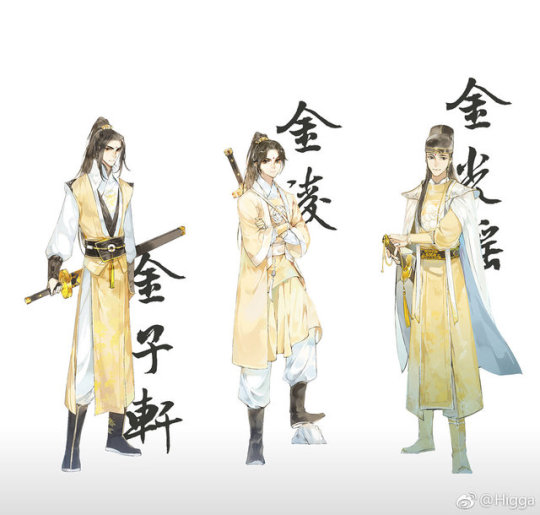
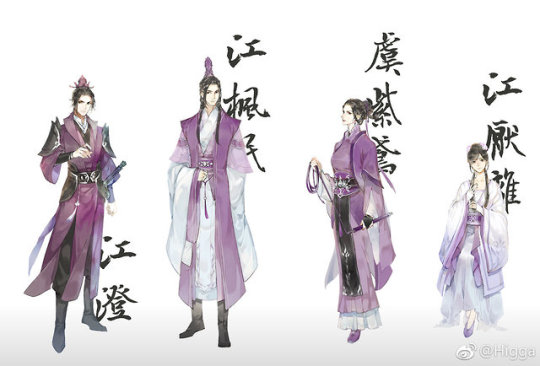
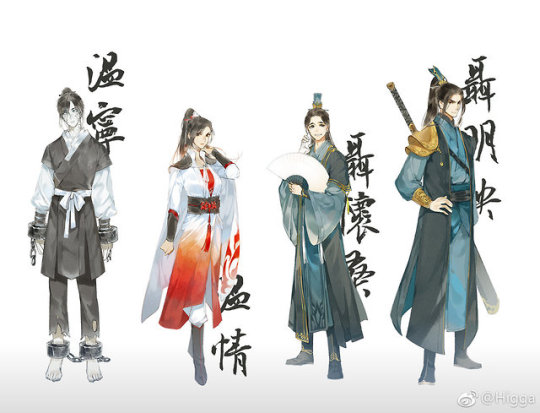

Art by Higga for Mo Dao Zu Shi
↳ Do not repost without credit or remove the watermark
9K notes
·
View notes
Text
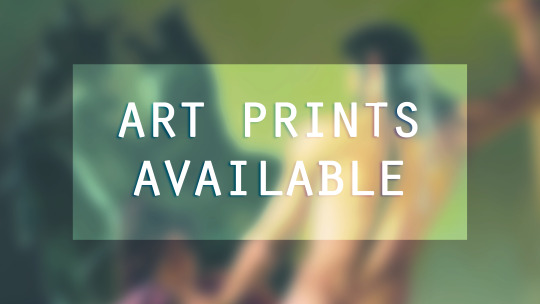
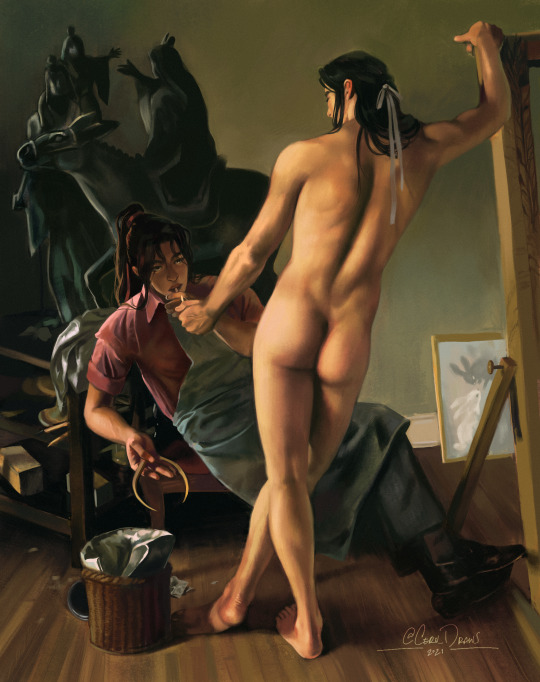
Wow! You now can get prints of this piece through my redbubble shop and, in real life, gaze into the warm, smooth, glorious planes of... Wei Wuxian's eyes!
194 notes
·
View notes
Text
🏵️🏵️🏵️🏵️
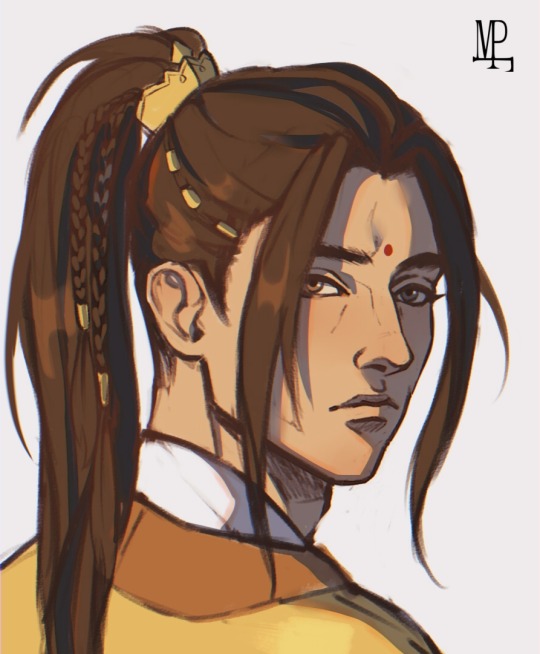
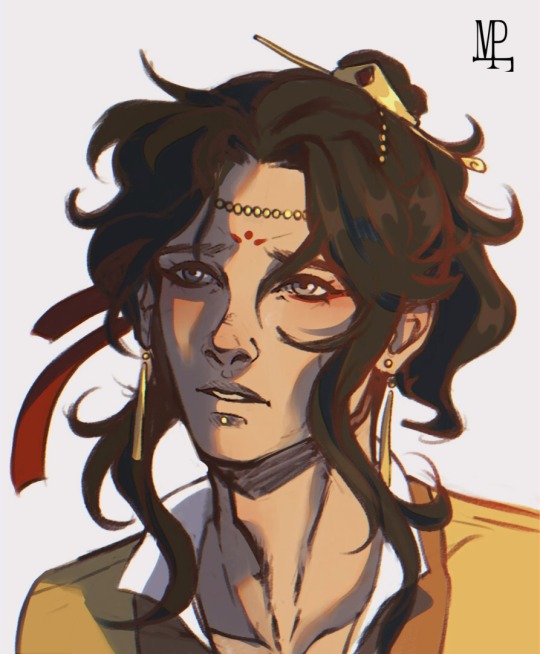
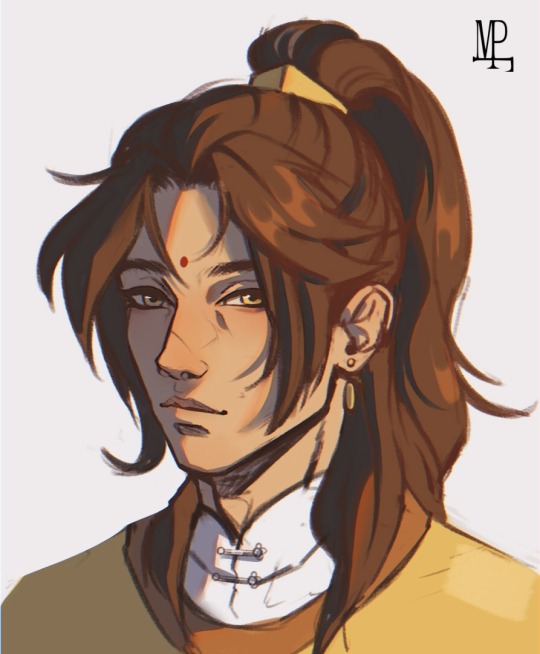
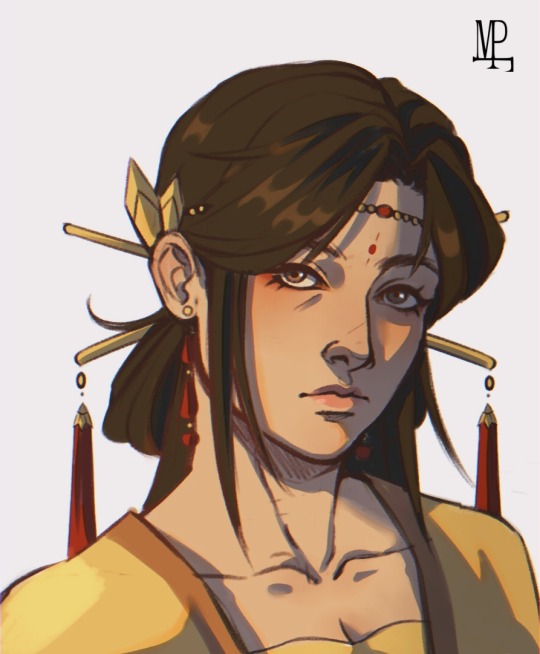
I really like to start the year with sketches! So it happened with the children of the Jin family. I like to add details to donghua's images, and since A-Yu wasn't shown to us in the clan, I have freedom in depicting him.
💛💛💛💛
1K notes
·
View notes
Photo


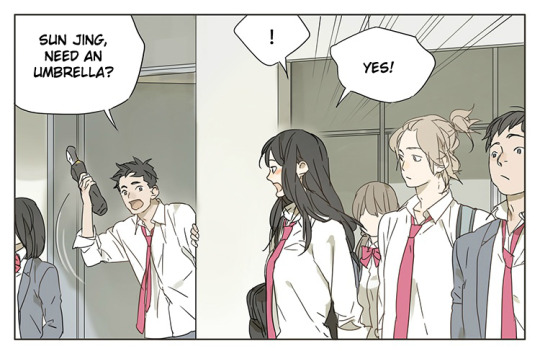

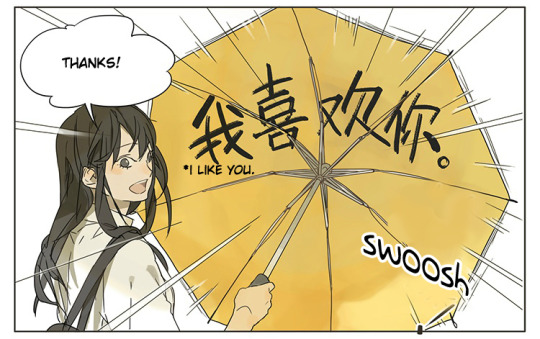
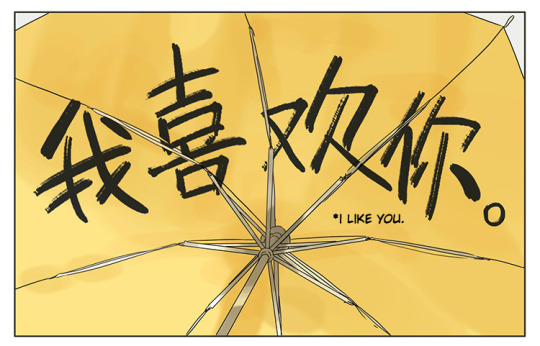
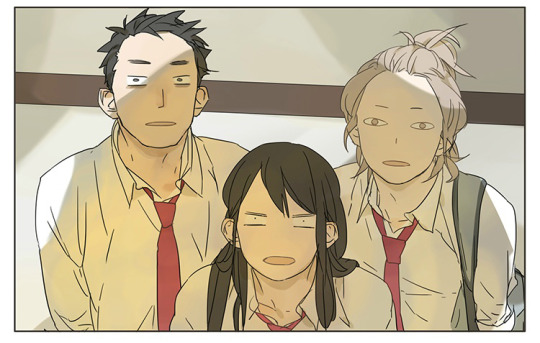

01/07/2015 update from Tan Jiu, translated by Yaoi-BLCD. We’ve temp added the watermark until we can think of a better way to solve the issue.
IF YOU USE OUR TRANSLATIONS YOU MUST CREDIT BACK TO THE ORIGINAL AUTHOR!!!!!! (TAN JIU). DO NOT USE FOR ANY PRINT/ PUBLICATIONS/ FOR PROFIT REASONS WITHOUT PERMISSION FROM THE AUTHOR!!!!!!!!!!!
Previously: 1// 2// 3// 4// 5// 6// 7// 8// 9// 10// 11// 12//13// 14// 15// 16, 17, 18// 19// 20// 21// 22// 23// 24, 25// 26// 27// 28// 29// 30// 31// 32// 33, 34//35//next
246K notes
·
View notes
Text
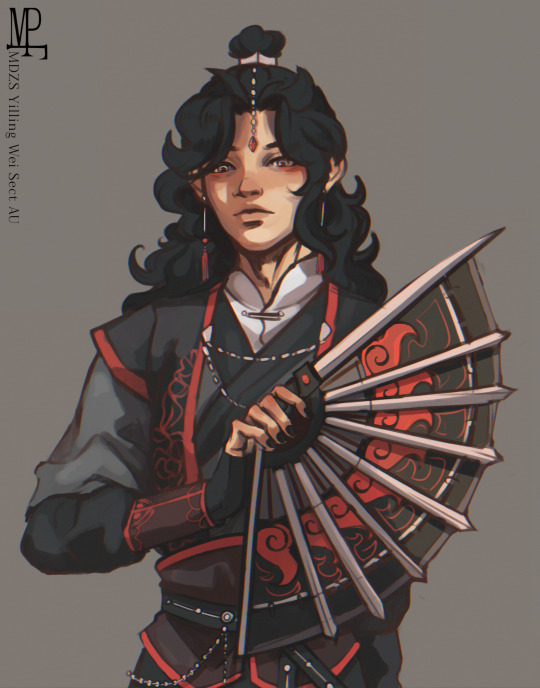
🖤 Second disciple of the Yiling Wei Sect - Mo Xuanyu ❤️
3K notes
·
View notes
Photo
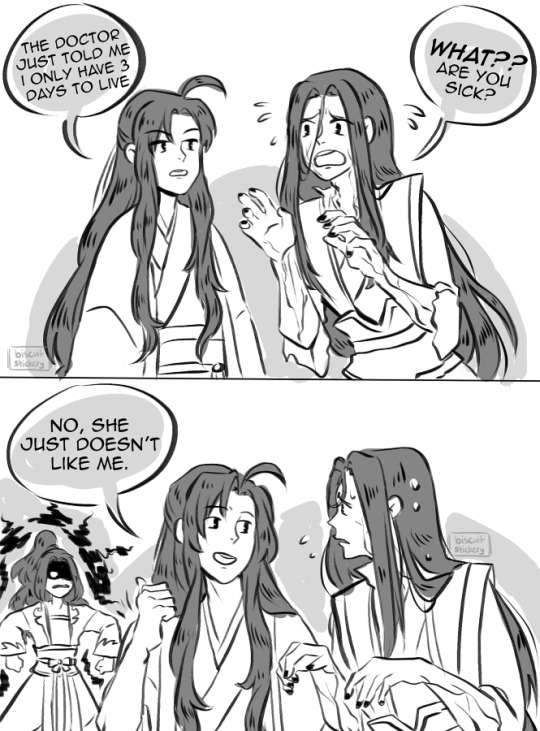
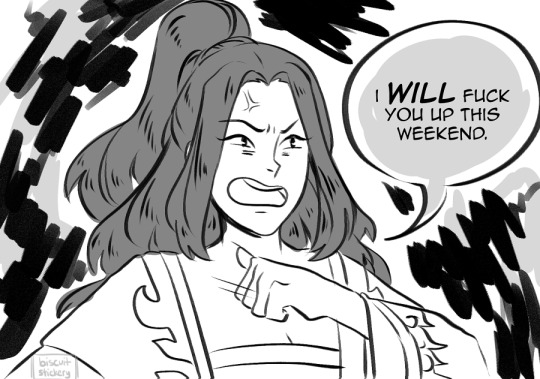
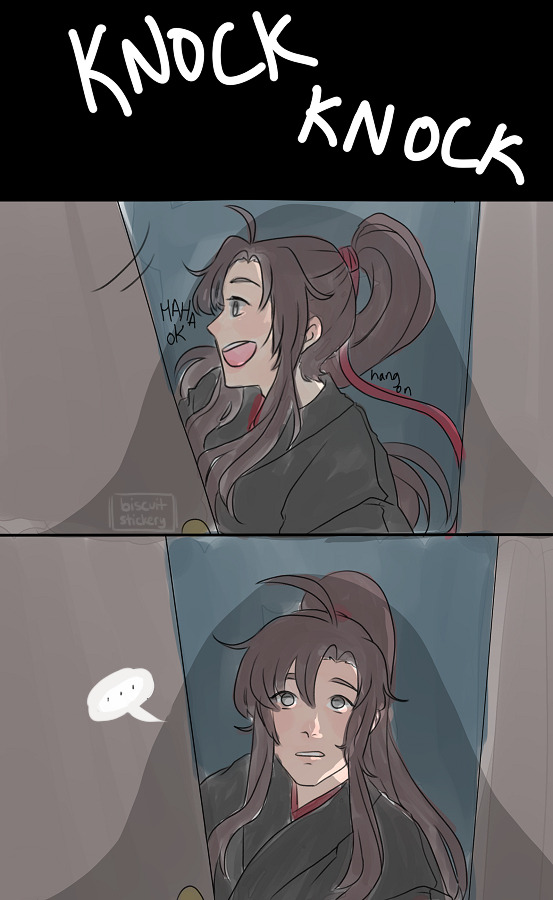
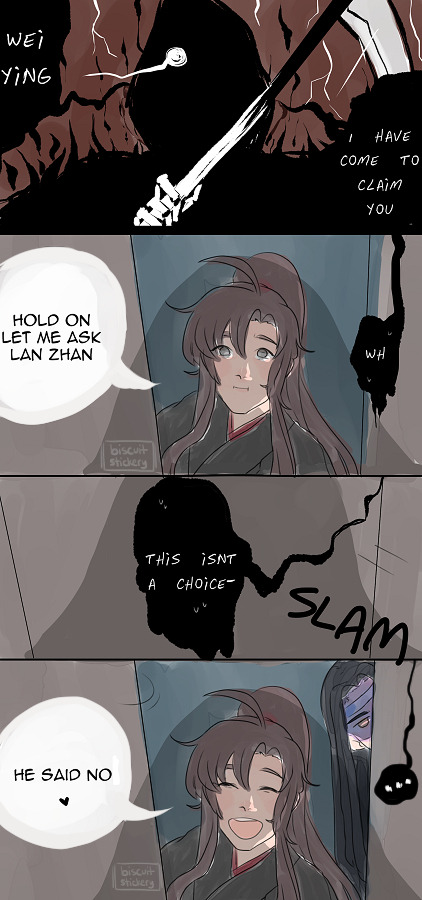
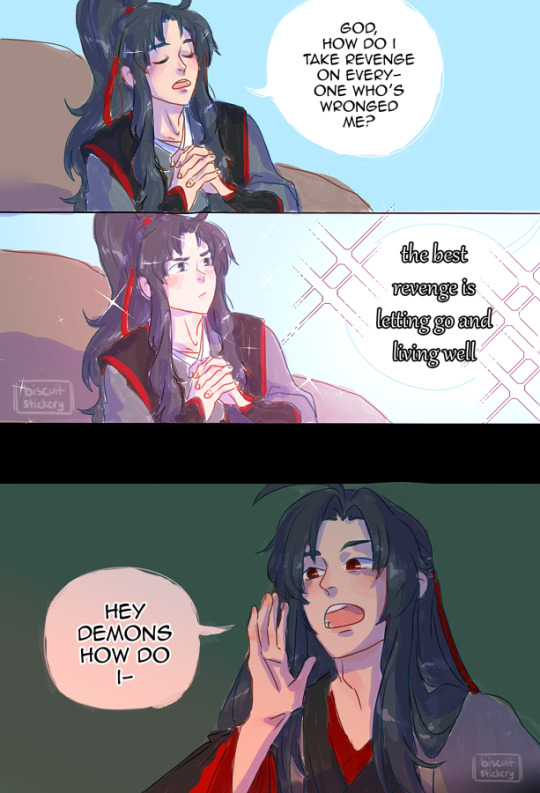
2019 parody doodles based on some tweets from incorrectmxtx!
7K notes
·
View notes
Photo
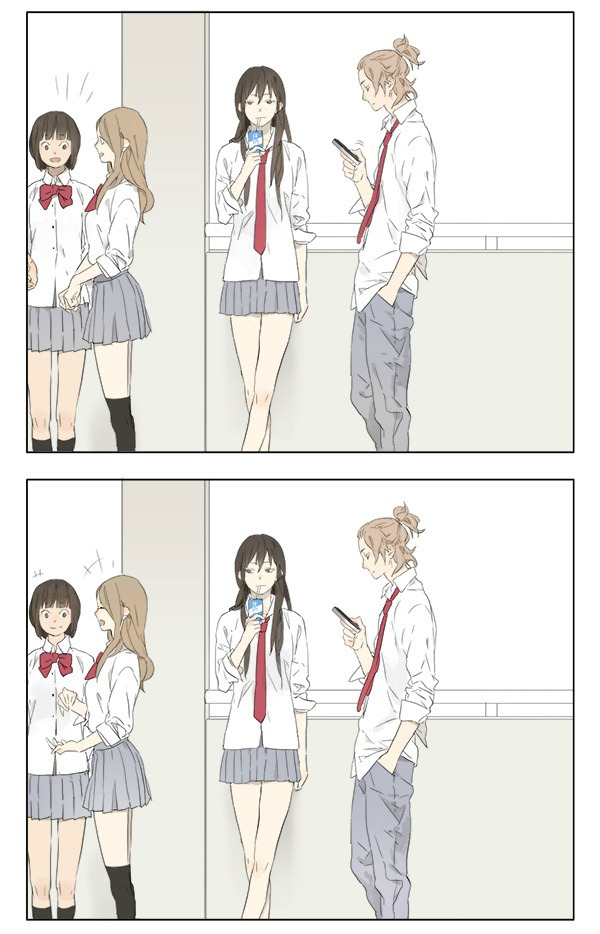
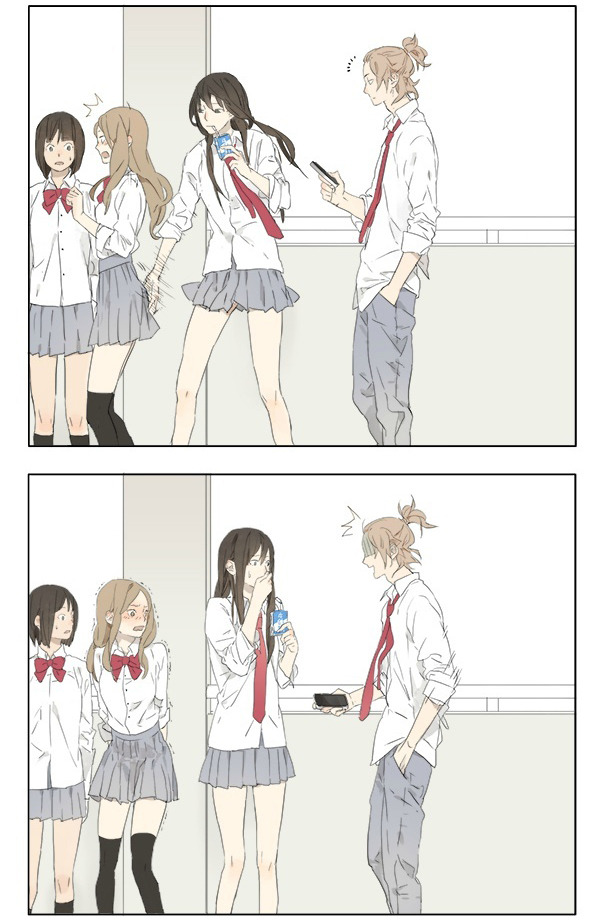
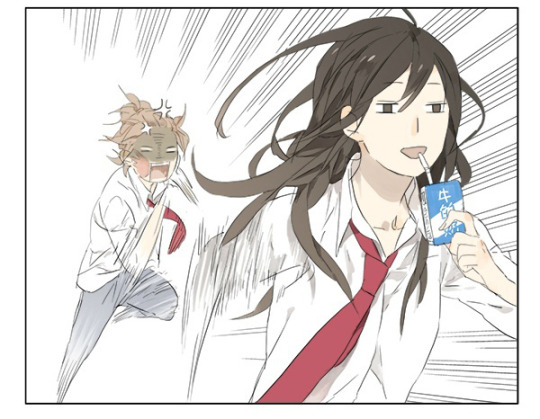
This was Sun Jing before she met Qiu Tong. Manhua by 坛九
1//next
57K notes
·
View notes
Text
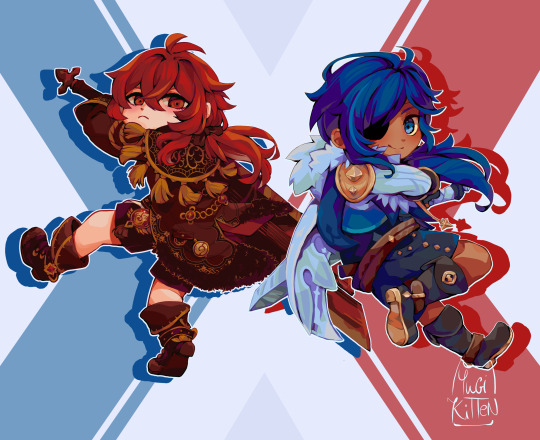
Say hi to smol Kaeya
Aah my some friends were really looking forward to this boi, especially after finishing Diluc!
Now it feels trully balance, with icy boy and fiery boi!
11 notes
·
View notes
Text
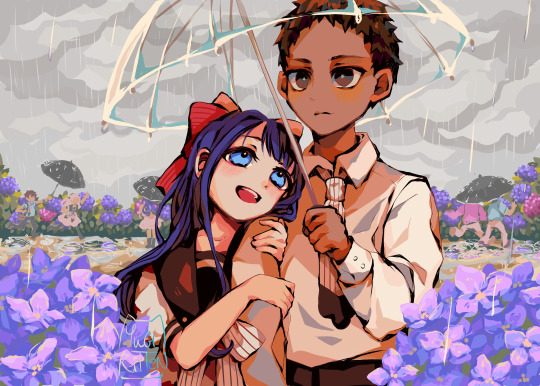
I have tried my hand at a background!
I honestly didnt particularly care for sumire, but after chapter 89, how could I not love her
That deeply lonely part of her that wished for someone, anyone to miss her after she died
I felt like she deserved better, and thus this came out of it, I hope you guys like it!
Cheers!
#hanakokun #hanakokunart #hanakokunfanart #jshk #tbhk #jibaku_shonen_hanako_kun #tbhkart #jshkart #akanesumire #sumireakane #sumire #no6tbhk #yashironene #neneyashiro #yashiro #yashiroxhanako #hanakokunofthetoilet #hananene #akaneaoi #aoiakane #minamotokou #kouminamoto #mitsukou #mitsuba #jshkart #tbhkart
10 notes
·
View notes
Text
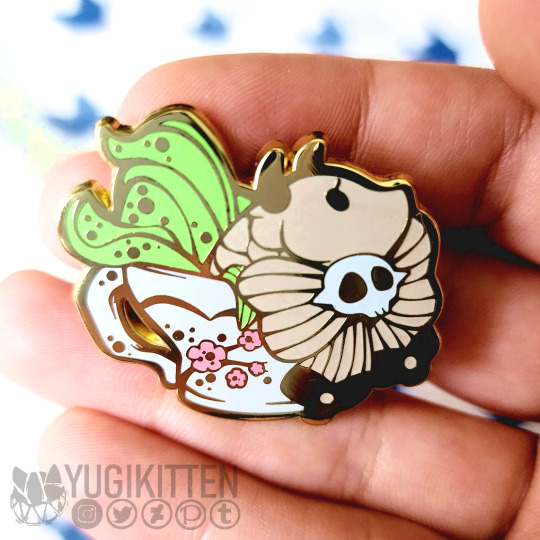
Hello hello! Today I present you my new pin!
Tiny Yashiro fish inspired by chapter 21/22/ episode 9! Cheers!
2 notes
·
View notes
Text
MDZS Weibo shares physical store photos of Miniso featuring MDZS merch. If only this was available in my country, I would’ve had a grand weekend strolling through the aisles oggling the merch and hauling my cart


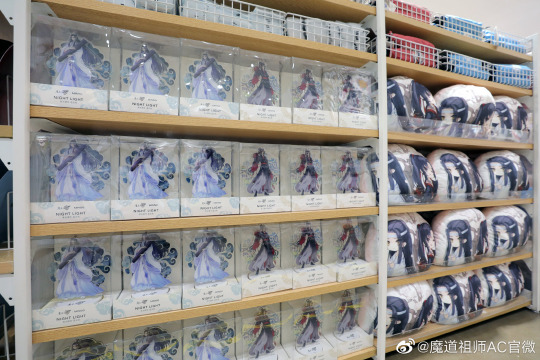


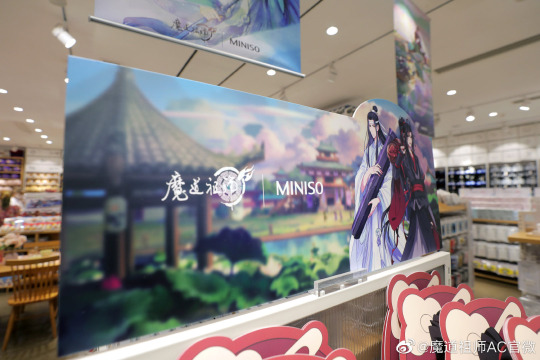
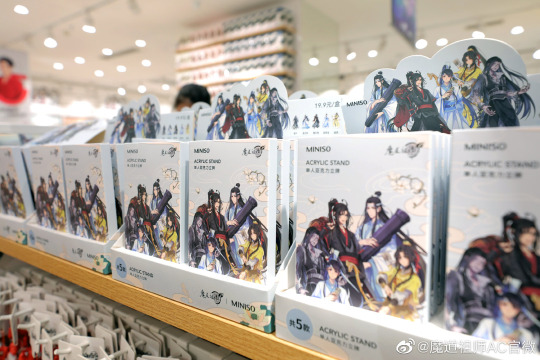
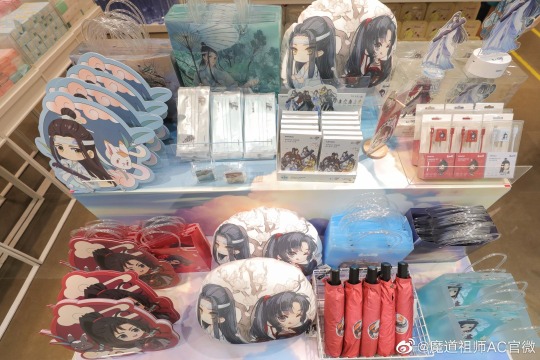

100 notes
·
View notes
Text
Cultural Influences in MDZS - Chapter One Part One
魔道祖师/The Founder of Diabolism (title of this work) refers to the “demonic/devil path”, which is divided into demons/devils as known in Chinese mythology, path as known as “principle” or “belief”, also meant to denote different paths of cultivation.
重生/Rebirth (title of this chapter) refers to the concept of reincarnation and rebirth common in Chinese spirituality, most of which is derived from Chinese Buddhism, Taoism and Confucianism.
魏无羡/Wei Wuxian (courtesy name of main character) is translated to “no envies” in Chinese (only the given name and not the surname is translated for the meaning). There is a reference to the concept of irshya in Buddhism, which is further elaborated upon in this article on jealousy and envy in Buddhism. In Chinese culture, names are gifts from parents to children, so special thought would have gone into finding a name that would suit Wei Wuxian - his parents would have hoped he could live a life free of the shackles of envy and covetousness, and this to some degree shows in his characterization in MDZS. The usage of courtesy names is linked to the Book of Rites.
乱葬岗/Burial Mounds is literally translated to chaotic grave mound - a specific term in Chinese used to describe a mass grave where bodies are not buried properly, where the sheer amount of unclaimed, unburied corpses becomes like a hill. In Chinese tradition, ancestors are venerated after their death as part of life after death beliefs linked to Buddhism and Confucianism.
修真界/cultivation world refers to cultivation as a way to build a path towards a desired outcome (in this case building spiritual abilities, spiritual energy, eventual immortality) - this is common in xianxia novels with roots in Qigong.
仙侠/xianxia as mentioned above re: xianxia novel genre refers to the Taoist concept of gods (xian) and heroes (xia) which describes an individual who is brave, chivalrous, and righteous.
夷陵老祖/Yiling Laozu, Wei Wuxian’s title (conferred by others) refers to Yiling district, which is located in Hubei. Laozu can be translated as Grandmaster, but it refers to a founder of a cultivation path who is venerated as a semi-deity or legendary figure - Laozu is not a common title bestowed to just anyone.
云梦江氏/Yunmeng Jiang (sect), 兰陵金氏/Lanling Jin (sect), 姑苏蓝氏/Gusu Lan (sect), 清河聂氏/Qinghe Nie (sect) have references to real life locations in China: Yunmeng is located in the Hubei Province, Lanling is in the Shandong Province, Qinghe is in Hebei, and Gusu is in Suzhou. 岐山温氏/Qishan Wen (sect)’s Qishan is in Shaanxi.
魏婴/Wei Ying as Wei Wuxian’s birth or given name can be translated to “child” or “childlike” (only the given name and not the surname is translated for the meaning), which might have some reference to Laozi’s Tao Te Ching where an excerpt references the childlike perception of nature.
宗主/Sect Leader refers to sects as xianxia world organizations - here’s a fandom wiki for sects as a concept in general.
白眼狼/biting the hand that feeds you is originally “white-eyed wolf”, referring to a derogatory term used in Chinese culture used to describe ungrateful people or ingrates.
魏某/Wei nobody (Wei Wuxian referred to with a different suffix after his surname) - in this context it is used in place of someone else’s given name to show dissatisfaction, but it can also be used in place of one’s own given name to refer to oneself with an intensified emotion like sarcasm, or to show politeness (according to Wiktionary). If you referred to yourself with this suffix, it is similar to lowering your status in comparison to the person you’re speaking to.
邪术/malevolent arts, literally translated to crooked skill or ability - also can be translated to black magic, sorcery or dark art if you’re looking for phrases with western connotations for ease of understanding (according to Wiktionary).
现世报/it is what he deserves - alternative translation “karmic retribution within this lifetime” refers to the Buddhist concept of karma and karma in other religions including Taoism.
阴虎符/Yin Tiger Seal refers to the notorious talisman/amulet that Wei Wuxian carries to channel and store resentful energy - the word 符 can be translated into talisman, seal, symbol, charm etc according to Wiktionary.
仙门之中/of the cultivation clans - the 仙门 part of the phrase is translated directly to “god/immortal door”, but in this context it refers to “the way of doing things, school, sect, school of thought, tradition” according to Wiktionary.
修炼/cultivation refers to meditation, practice of asceticism or cultivation practice (often encountered in Taoism) according to Wiktionary. Here is the Wikipedia section on physical cultivation in Taoism.
Link to main archive for Tumblr mobile
Link to main archive for Tumblr desktop
Link to my Ko-Fi if you like what I’m doing
314 notes
·
View notes
Text
Cultural Influences in MDZS - Chapter One Part Two
邪魔歪道/the crooked path refers to the cultivation path Wei Wuxian adopts later in life - it is described as a crooked path; not straight in terms of virtue according to Wiktionary.
死无全尸/to die without even a corpse - alternative translation “death without a complete body” bears a reference to a taboo surrounding death and funeral rites - in Chinese folk culture the belief is that a loved one’s body must remain intact and that burial brings peace to the deceased, hence the preference for inhumation/interment. It is a big deal that Wei Wuxian’s body was not found after his death, because their souls will not be at peace or they will have difficulty reincarnating etc if their bodies are not laid to rest correctly and in one piece(s). An example of how seriously Chinese folk culture took having the body in one piece during interment is when eunuchs are buried with their removed organs upon death, as their belief was that their masculinity would be restored in the afterlife.
天怒人怨/make people resent him - alternative translation “the wrath of both man and the heavens” refers to a Confucian and Taoist concept related to the celestial aspect of the cosmos. In this case, to offend both men and the heavens relates to the gravity of the sin that Wei Wuxian committed with his unorthodoxy (or at least the judgement of the people around him and how they perceived his actions).
善恶终有报/you reap what you sow refers to both Confucian and Taoist principles surrounding dualism in cosmology - literally translated, this phrase means if you do good or if you do bad, you will eventually get what you deserve.
残魂/summon his wretched soul, but specifically soul remnants or remnants of the soul. This phrase is divided into 残, which refers to remains or that which is left behind and 魂, which refers to the part of the soul that ascends to heaven upon death. If Wei Wuxian’s soul remnants could not be summoned, there was a high likelihood he was dragged out of the cycle of reincarnation or unable to ascend to heaven, and thus unable to rest in peace due to the violent nature of his death.
魂魄/soul, but specifically the types of souls described in traditional Chinese philosophy and religion.
召魂/soul summoning, refers to summoning rituals done for the soul, linked to souls as described in traditional Chinese philosophy and religion as mentioned above (historical example in this link).
元神复位/came back to life - alternative translation “the soul is pieced together again” refers to the complete soul (hun and po) in traditional Chinese religion, where if the soul is complete the deceased can continue on to the afterlife or reincarnation as well as be summoned back.
人间/the world is usually translated as the human world or the mortal world, linked to the division between the heavens and the human world in Taoism.
诅咒/cruelty and bloodthirst - it is rolled together as “cruelty and bloodthirst” in the English translation but it just means a (usually malevolent) curse (here is the Wiktionary link)
��山石兽/guardian beast statues are linked to stone lions used in traditional Chinese architecture as guardian statues - while the statues mentioned in the text may not refer specifically to stone lions (as there are certain traditions and customs that have to be fulfilled), stone statues as guardians of a specific place is a common concept in most architecture. Further notes on cosmological concepts in Chinese architecture here.
神魂俱灭/his immortal soul truly was extinguished, again referencing the notes on soul completeness mentioned above.
云覆手雨/create clouds with the turn of one hand and rain with the turn of another - references a line from a poem by Du Fu (specific reference baidu link here) called An Ode to Friends In Need/贫交行.
奉在神坛之上/worshipped forever - literal translation “being put on the altar” refers to ancestral and deity worship in traditional Chinese culture, closely linked to Confucian philosophy and Taoist/Buddhist religion practices in China.
受/receiver or bottom, commonly used in danmei (Chinese genre for male/male love stories).
Link to main archive for Tumblr mobile
Link to main archive for Tumblr desktop
Link to my Ko-Fi if you like what I’m doing
100 notes
·
View notes
Text
Cultural Influences in MDZS - Summary
前世/previous life - refers to the concept of reincarnation in Taoism, where people live through multiple lives
死无全尸/now in death, his body was broken and lost bears a reference to a taboo surrounding death and funeral rites - in Chinese folk culture the belief is that a loved one’s body must remain intact and that burial brings peace to the deceased, hence the preference for inhumation/interment.
曾掀起腥风血雨/once caused storms of blood and waves of death, literal translation “a rotting fishy stink wind blood rain” emphasizes the danger of a massacre or widespread killing by describing the fishy smell/scent of iron in the air, and the rain being replaced with blood rain. The reference comes from Water Margin (水浒传), a famous novel written by Shi Nai’an.
重生/reborn refers to the concept of reincarnation and rebirth common in Chinese spirituality, most of which is derived from Chinese Buddhism, Taoism and Confucianism.
断袖/cutsleeve is derived from the story of the Emperor Ai of Han who famously cut his sleeve so he would not disturb his sleeping lover Dong Xian. Emperor Ai was well known for being homosexual - traditional historians referred to his relationship with Dong Xian as “the passion of the cut sleeve/断袖之癖“.
修仙/[omitted, translates to cultivation path of immortality] refers to meditation, practice of asceticism or cultivation practice (often encountered in Taoism) according to Wiktionary. Here is the Wikipedia section on physical cultivation in Taoism. In this case, the cultivation path leads to immortality, which is also mentioned in the Wikipedia article on Taoist physical cultivation.
十方恶霸/ruthless beyond measure, literally translated as “ten directions of evil barbarism”.
九州奇侠/have the heroes of the land on your side - literally translated as the heroes of the Nine Provinces. The Nine Provinces is an archaic name for China, hence using the word “land”. The Nine Provinces refers to the region before the unification into China - Baidu link here and Wikipedia link here.
高岭之花/[omitted due to redundancy, translates to “The Flower of Gaoling”] is used to describe things that are untouchable and can only be seen from a distance, or things that can only be longed for but are out of reach for oneself (according to Baidu)
Link to main archive for Tumblr mobile
Link to main archive for Tumblr desktop
Link to my Ko-Fi if you like what I’m doing
74 notes
·
View notes
